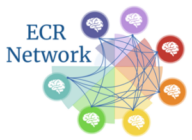A Public Engagement Workshop led by Dr Nicolaas Puts

Dr Nicolaas Puts
Effective communication of scientific concepts is more crucial than ever. Yet, bridging the gap between complex research and public understanding remains a challenge. On the 25th of April, we held an online public engagement workshop as part of the Early Career Research committee, led by Dr Nicolaas Puts. Fifteen early career researchers attended the workshop, where they had the opportunity to learn about science communication, storytelling, audience engagement, and the art of avoiding jargon.

Dr Puts kicked off the workshop by providing important information on what science communication skills are important to have, strategies to craft your message to the public and ways of cutting jargon. Dr Puts moved on to explain the importance of storytelling. Specifically, some of the areas covered were:
- Defining clear communication objectives and communicating them.
- Choosing and understanding your audience.
- Strategies for defining and sharing your message effectively to make it memorable and meaningful.
- Making it simple, not simplistic: Methods to distil complex scientific concepts into digestible information, ensuring accessibility for diverse audiences.
- Learning of the strategies and structure of successful storytelling.
An important aspect that was also discussed was how to use inclusive language and become a better speaker. The workshop covered the ways and the steps towards better speaking, including the do’s and ‘don’t’s when speaking to the public.
One of the workshop’s highlights was its interactive part, involving exercises in breakout rooms, where attendees had the chance to put theory into practice and give feedback to each other. The goal of these exercises was to practice avoiding jargon and presenting your research clearly and concisely. This really helped thinking carefully about the language used in science communication and learn how to speak effectively to different audiences.
The attendees gave positive feedback about the workshop. Some of their comments were:
‘The workshop was very extremely insightful and interactive!’
‘It was lovely to meet other ECRs and talk about how to present our work.’
‘The slides were very engaging and Nick was good at relating this to his own experiences, tips and how to make slides more engaging and less crowded.’
The attendees gave positive feedback about the workshop and we are confident that they became equipped with the knowledge, skills and confidence for communicating their research to the public. We hope that they departed with a newfound understanding of science communication and the tools to craft compelling messages and elevator pitches that resonate with diverse audiences. Last, we want to thank Dr Puts for leading this wonderful workshop.
Dr Puts will also present at our next Lunch and Learn webinar which will take place online on the 20th of May. Dr Puts will discuss the topic of Sensory perception in the context of neurodevelopmental conditions. If interested, register via Eventbrite Link here
Article written by Eirini Papageorgopoulou


